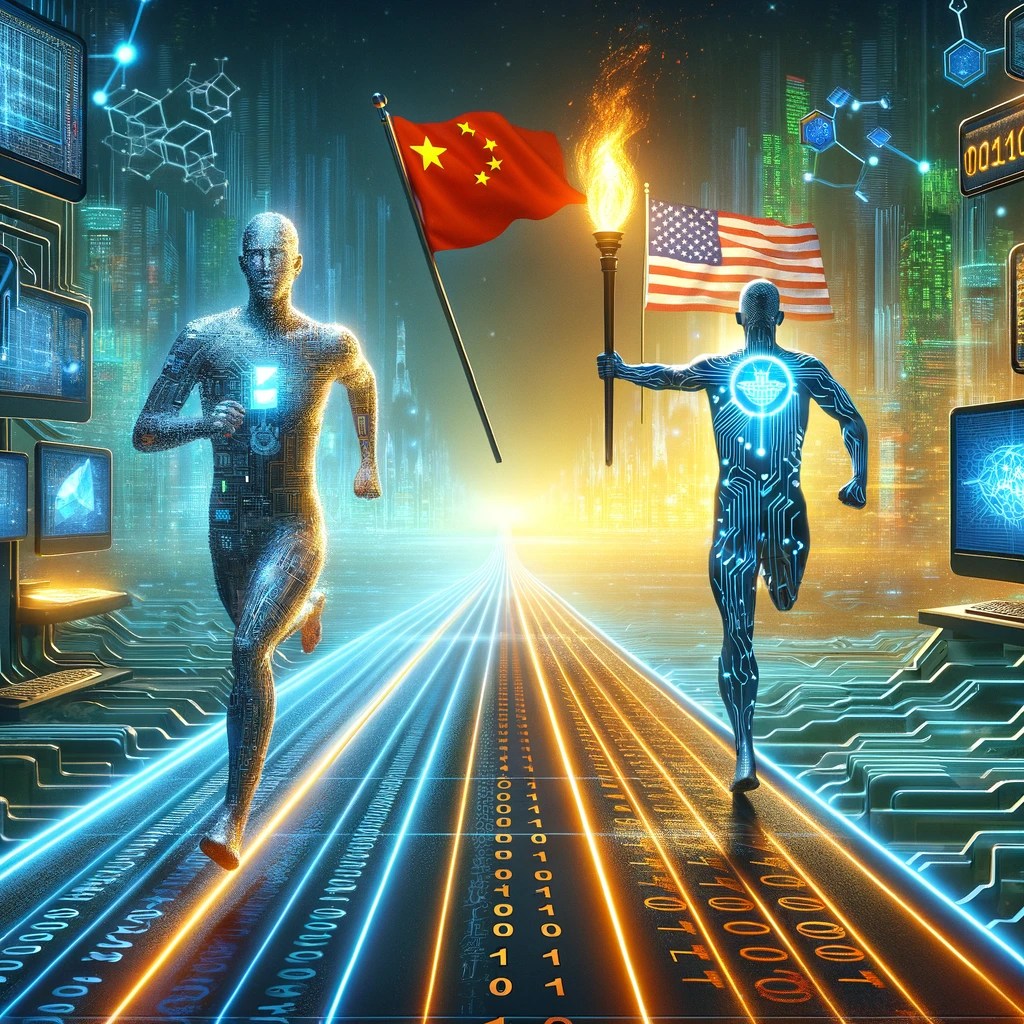China aims for dominance in AI, but depends on US

March 2, 2024
Artificial intelligence is becoming increasingly crucial in the modern world, and China is trying to become a leader in this area. However, the reality is that China still depends heavily on U.S. technology to achieve its goals of AI dominance.
China’s race to become a leader in AI
China has made tremendous progress in the field ofAI in recent years. The Chinese government has invested substantial financial resources to develop AI and has set ambitious goals for the future. China’s strategy is aimed at becoming the world leader in AI by 2030 and overtaking the United States in this field.
Despite China’s progress in AI, the country still depends heavily on U.S. technology to achieve its goals. Chinese companies rely on U.S. technology providers for access to advanced hardware, software and machine learning algorithms. Without this access, China would have enormous difficulties in advancing AI.
Challenges for China in achieving technological independence
China is trying to reduce its dependence on U.S. technology, but it faces several challenges. One of the main challenges is the lack of local talent in AI. Although China has many talented engineers, the country still struggles to close the gap with the United States in terms of AI skills.
Despite the challenges, China is making significant progress in reducing its dependence on U.S. technology. The Chinese government has launched a number of initiatives to promote research and development in AI. These initiatives include investing in research centers, establishing training programs and attracting foreign talent.
Competition between China and the United States in AI
Competition between China and the United States in AI has become increasingly intense. Both countries are investing significant resources to become leaders in this field. The United States still maintains a significant technological advantage, but China is making rapid progress in closing the gap.
The AI domain has significant geopolitical implications. AI can be used for military purposes, mass surveillance and social control. China, with its leadership in AI, could influence global geopolitics and challenge the technological supremacy of the United States.
The future prospects of AI
The future of AI is very promising. With continued advances in technology and machine learning, AI will have an increasing impact on all aspects of our lives. China and the United States will still compete for AI dominance, and the outcome of this competition will have a significant impact on global geopolitical dynamics.








